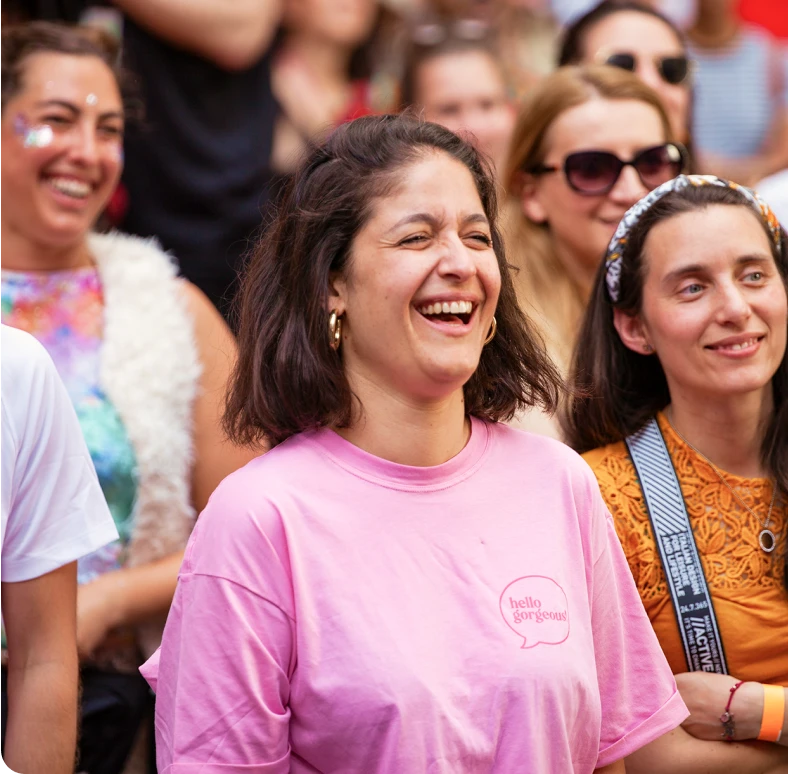3 Skills to Elevate Your Influence as a UX Researcher

Ashley Reese is a senior UX researcher who leads studies that shape how we build technology. Her research uncovers travelers' needs and behaviors to inform our product decisions and build features that delight travelers. In 2019, Ashley moved from San Francisco to Berlin to join us.
{{divider}}
What do UX researchers do?
UX researchers at GetYourGuide are embedded into Product teams where we collaborate with UX designers, UX writers, product managers, and engineers. At our company, we work together to build the future of travel technology. Through user research, we magnify our customers' voices to shape our travel marketplace platform. With our cross-functional team members, we identify solutions to customer problems while taking into account what’s possible on both the business and tech sides.
What are skills that impact the influence of a UX researcher?
1. Prioritizing research that’s the most actionable and impactful
It’s not enough to know how to conduct a variety of research methods. A successful UX researcher understands how to surface the right research questions effectively — and prioritize answering them in a way that makes the outcomes actionable and impactful.
To ensure our research has impact, we connect research questions to clear product decisions. During each study, we align with our team on the research goals and how learning about our customers will help us choose what new features to build and how to build them in a way that’s usable and understandable to travelers. Then, we identify the best method to answer the research questions. After running the study, product managers, designers, and engineers take action on the insights.
Here’s an overview of some of the research methods we use:
- Interviews: We do in-person and remote interviews with travelers to understand their needs and motivations.
- Usability studies: We test prototypes to evaluate how easily travelers can use new designs to book activities and experience them on their trip.
- Intercept studies: We do 10-minute interviews with travelers as they're in the destination and sightseeing to learn about their current needs and interests.
- Surveys: We send out surveys via email to travelers in our key markets to understand the prevalence of observations we see in qualitative research.
- Sentiment analysis: We analyze activity reviews and customer service contacts to understand what is and isn't working well on our booking platform and activities.
- Diary studies: We record travelers' experiences throughout their trip from dreaming about a place, to booking activities, to going on the activities in-destination. This helps us understand the unmet needs they have and where we can help them along their journey.
2. Collaborating well with other disciplines
The outcomes of UX research are brought to life through a collaboration with other disciplines. A critical skill for UX researchers is the ability to collaborate well with cross-functional team members.
At GetYourGuide, we work in mission teams centered around solving customer problems. In these teams, we work closely together throughout all the stages of product development. This ranges from discussing the product strategy, prioritizing new features, iterating on designs, to — of course — UX research.
When running a study, we begin by collaboratively identifying UX research questions such as, "How do different types of travelers change the way they research and plan activities due to COVID-19?” Then, we discuss how answering the questions will help inform product decisions, such as what new features to build that will support travelers during the time of COVID-19.
When we interview participants, the team observes sessions, takes notes, and participates in the analysis of findings. When the team actively participates in the study, we collectively develop a better understanding of our customers and their needs. As a result, when we’re in team meetings discussing new features or designs, there’s not just the voice of the UX researcher in the room advocating for the customers’ needs – the entire team is an advocate and we consistently apply the learnings from research to what we build every day.
At the end of the study, we discuss our top learnings and the implications for the team.
For example, we could learn that travelers need more information about how a tour operator protects their health and safety before they feel comfortable booking a tour. We’ll write How might we statements like, "How might we help reassure travelers that tour operators are adhering to strict health standards?” and discuss ideas as a team.
By bringing in multiple perspectives and making research a collaboration across disciplines, the findings are more actionable and we come up with more creative solutions to our customer problems.
3. Communicating skillfully to amplify customer insights
Another critical skill for UX researchers is communication. Effective communication skills, like facilitating, synthesizing information, and giving engaging presentations, are important throughout a study to help ensure the research has impact and influences customer-centric decisions.
By communicating well with our teams, it helps us stay aligned on projects and share our findings in the clearest way. When we wrap up a study, we share our insights with the tech leads over email, in our #research-announcements Slack channel that team members from other departments like Sales and Marketing are part of, and in our quarterly newsletters that we send to the company.
We're always thinking about new ways to creatively communicate with our teams in a way that's fun and engaging. When we transitioned to remote work during COVID-19, we found new ways to involve our cross-functional teams during studies.
Here are some examples of games we've created during remote work to communicate with our teams throughout our studies:
Beginning of a study
🔮 Crystal ball: We recently introduced a game called "Crystal Ball." This game helps teams think about how the UX research questions and interview script we've designed will help us answer the key learnings we're seeking through the study. It also helps team members prepare for a range of possible outcomes from the research.
How it works: During the research kick-off meeting, we ask our team to write down as many predictions as they have for what might happen during the study. Then, after the study, we compare what happened to the team's predictions. (Shoutout to Research Operations Specialist, Tony Cusimano, for this game)
During a study
🏆 Bingo: This game encourages team members to actively observe sessions, brainstorm solutions, and identify patterns between participants.
How it works: During interviews, the team fills out a 5x5 bingo board. To fill in the board, the team takes notes for sessions, observes a variety of participants from the US and Europe, identifies patterns between participants, and writes down "How might we?" statements. The bingo winners get prizes based on their engagement during the study. Here are more details about how we run remote research bingo at GetYourGuide.
After a study
🧩 Crossword puzzles: By presenting learnings in a crossword puzzle, we help teams focus on the key takeaways from the research and make the top findings more memorable.
How it works: We create crossword puzzles for large research projects that have lots of findings or when we send out a summary of findings from several studies like in our quarterly newsletters. We highlight the top 3 - 5 insights from our research in the crossword puzzles. You can see an example at the end of the article (shoutout to Senior UX researcher, Paula Herrara, for this idea).
What’s the most important skill in UX research?
Even when we hit turbulence as a product team — whether it’s COVID-19 or an unexpected technical constraint — we stay focused on the customer to guide our way. When we do UX research, there’s more to being successful than just being a good investigator or having different methods in our back pocket. To truly solve problems for the customer and make their lives easier, we have to be creative and work well with other disciplines. When everyone is onboard and advocating for customers, including the product managers, designers, writers and engineers, our path ahead is blue sky.
For updates on our open positions, check out our Career page.

Across
3. A way of working that helps make research actionable
Down
1. A skill that influences customer-centric decisions
2. A method we use to understand travelers’ needs and motivations
4. A game we play with teams as we’re running remote studies
ANSWERS
Other articles from this series
Featured roles
Join the journey.
Related blogposts







